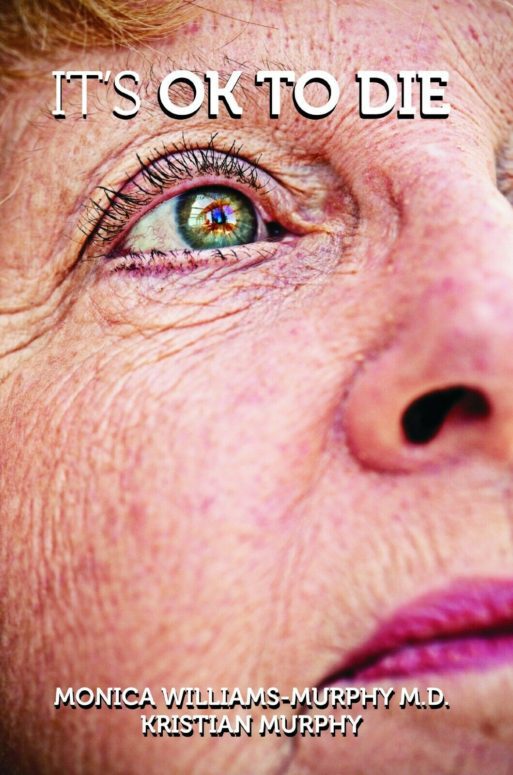 “It’s OK to Die” was written by Dr. Monica Williams-Murphy, an emergency room physician, and her husband, Kristian Murphy. Dr. Williams-Murphy writes about how difficult it is to treat critically ill people who do not have advance directives. If the patient is not able to make decisions for him or herself, a surrogate must step in and make the choices. All too often, the surrogate does not know what the patient would have wanted and makes decisions that are not in line with the patient’s wishes.
“It’s OK to Die” was written by Dr. Monica Williams-Murphy, an emergency room physician, and her husband, Kristian Murphy. Dr. Williams-Murphy writes about how difficult it is to treat critically ill people who do not have advance directives. If the patient is not able to make decisions for him or herself, a surrogate must step in and make the choices. All too often, the surrogate does not know what the patient would have wanted and makes decisions that are not in line with the patient’s wishes.
In “It’s OK to Die” Dr. Williams-Murphy states that every adult should have a living will and a durable power of attorney for healthcare decisions. And people who do not wish to be resuscitated if their hearts stop should have an outside-the-hospital DNR, or do not resuscitate order.
The authors of “It’s OK to Die” acknowledge that completing these documents and having conversations with loved ones is difficult. They offer several forms to help you think about your preferences and complete the necessary documents. They also recommend that you speak with your doctor regarding the goals of care.
“It’s OK to Die” also suggests ways to initiate difficult discussions with family members, friends and the health care agent. If you communicate your wishes clearly to your loved ones, there is less of a chance that they will panic and ask for aggressive treatment if you do have a health crisis.
The title, “It’s OK to Die” refers to the natural rhythms of life. Everyone is born, and everyone dies. No matter how young or how old a person may be, death can arrive at any time. The authors argue that if we could look at death as part of a natural process, there would be fewer futile life-saving attempts. And they say that when medical professionals speak of trying to prolong life, they are often only prolonging death and even increasing the patient’s suffering.

Credit: about.me/monicawilliamsmurphy
In “It’s OK to Die,” Dr. Williams-Murphy takes primary care doctors to task for offering false hope to patients and for failing to have candid end-of-life discussions. She also asserts that hospice, or comfort care, is underused. Another point the authors make is that futile hospitalization can be very expensive — to the individual, to private insurance companies and to Medicare.
“It’s OK to Die” isn’t perfect. It’s a little repetitive with the authors making the same point over and over. This may be deliberate, though. Many people do learn better with repetition. If you tend to pick things up quickly, however, this may not be the book for you.
Overall, “It’s Okay to Die” is an easily readable book that offers common sense ideas about initiating end-of end-of-life discussions and leaving behind explicit instructions that will help make your death easier on your loved ones.
For more information about the book and for copies of the forms visit the website for “It’s OK to Die.”
Did you enjoy this post? Check out our review of Dr. Jessica Nutik-Zitter’s book, “Extreme Measures,” an in-depth exploration of the American approach to the end of life.

 “It’s OK to Die” by Monica Williams-Murphy and Kristian Murphy
“It’s OK to Die” by Monica Williams-Murphy and Kristian Murphy


 John Mulaney’s “Funeral Planning” on Netflix: No Real Plan
John Mulaney’s “Funeral Planning” on Netflix: No Real Plan

 Composting Bodies Is Now Legal in a Dozen States
Composting Bodies Is Now Legal in a Dozen States














